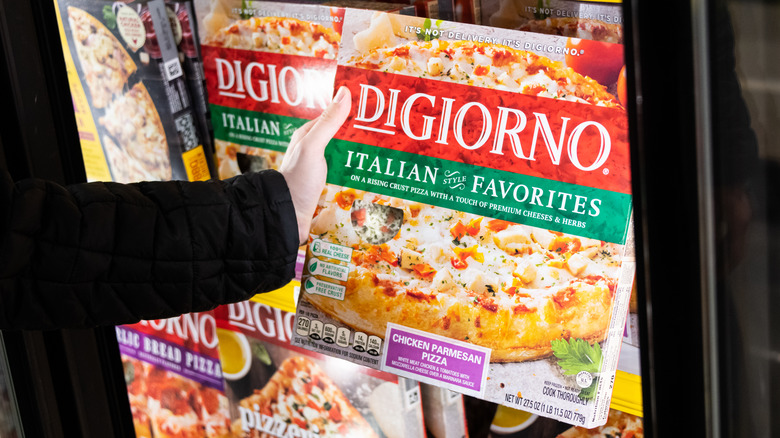Why You Probably Don't Need To Add Salt To Your Food
While your body needs a certain amount of sodium to function, Americans consume an average of 3,400 milligrams of sodium every day. According to the U.S. Food and Drug Administration (FDA), people should consume less than 2,300 milligrams each day.
The primary cause of the high sodium levels in our diets is largely due to the fact that many Americans eat a substantial amount of processed and packaged foods. According to the FDA, these foods are to blame for roughly 70% of our salt intake. On top of eating large quantities of processed foods, many also add salt to food during and after cooking.
According to the University of California San Francisco, some examples of high sodium foods that you should limit include canned meat, cold cuts, hot dogs, frozen dinners, canned entrees, ravioli, and chili. Given the high quantities of sodium in these items, you don't need to add any more salt to the dish when you eat them.
This is what happens when you eat too much salt
If you have too much salt in your diet, there are a number of short- and long-term negative effects. According to Medical News Today, one short-term side effect is water retention. This is due to the kidneys retaining water in order to balance the increased sodium levels. As a result, adding too much salt to your food could ultimately lead to weight gain. A more serious short-term health issue is an increase in blood pressure. This is due to the water retention increasing the flow of blood, which puts more pressure on the heart. Adding too much salt to your food on a regular basis can also lead to potential long-term risks, such as heart attacks, kidney disease, kidney stones, and stomach cancer.
If you feel you have consumed too much salt, Medical News Today recommends trying to naturally rebalance your salt levels by eating potassium-rich foods, such as bananas, sweet potatoes, oranges, or non-fat yogurt. Like sodium, potassium is an essential nutrient, but it has the opposite effect of sodium on the body. It relaxes blood vessels and reduces the amount of sodium in your body. You can avoid this stop-gap measure altogether by regularly reducing your consumption of packaged and processed foods and replacing them with fresh fruits and vegetables (via Harvard T.H. Chan School of Public Health).


